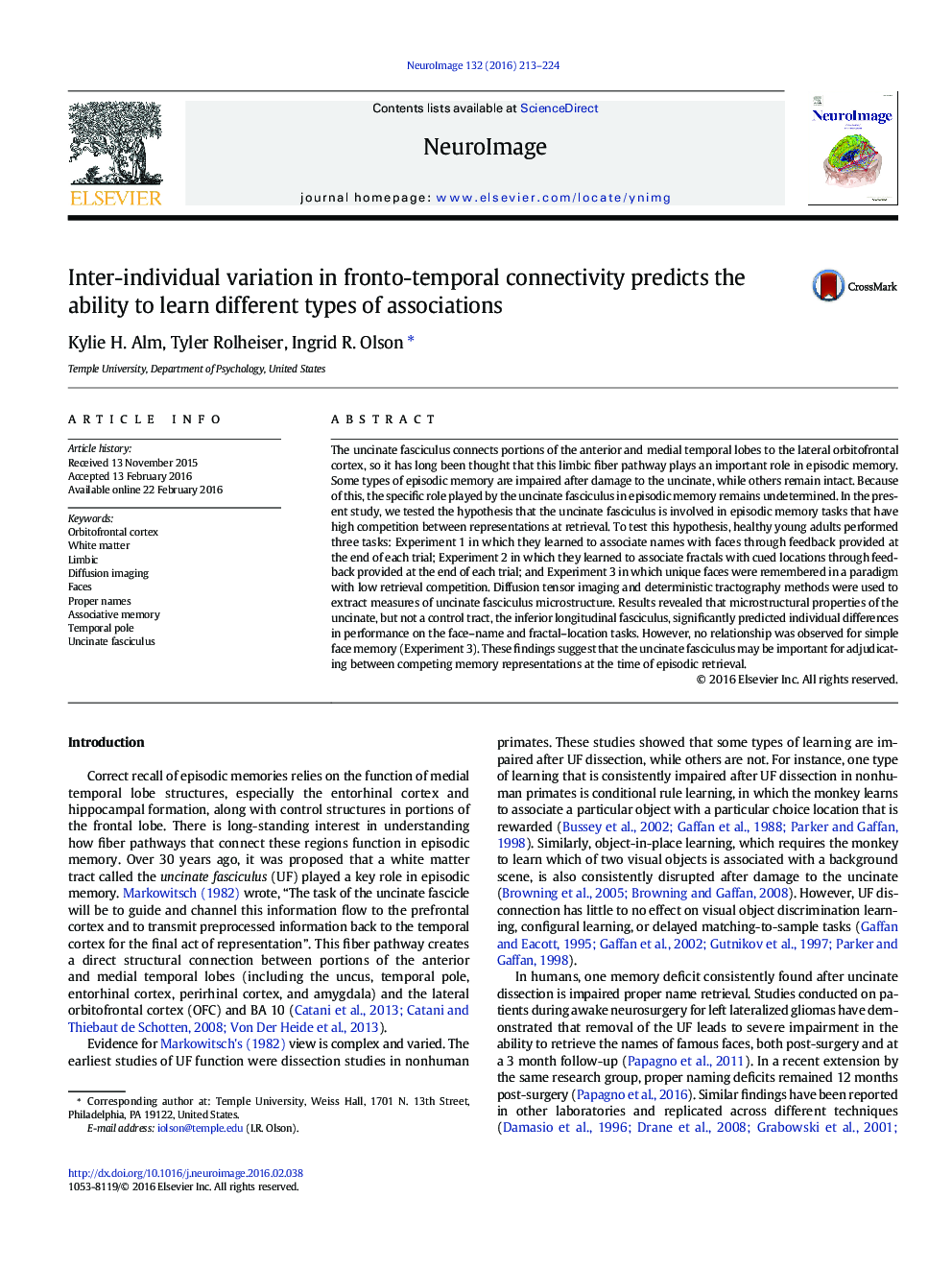| Article ID | Journal | Published Year | Pages | File Type |
|---|---|---|---|---|
| 6023714 | NeuroImage | 2016 | 12 Pages |
â¢Hypothesis: the uncinate fasciculus supports resolution of retrieval competition.â¢High competition memory tasks: face-name learning and object-location learning.â¢Variation in the uncinate predicted performance on high competition tasks.â¢No such effect was found in a control tract or a low retrieval competition task.â¢Thus, this tract facilitates adjudication between competing memory representations.
The uncinate fasciculus connects portions of the anterior and medial temporal lobes to the lateral orbitofrontal cortex, so it has long been thought that this limbic fiber pathway plays an important role in episodic memory. Some types of episodic memory are impaired after damage to the uncinate, while others remain intact. Because of this, the specific role played by the uncinate fasciculus in episodic memory remains undetermined. In the present study, we tested the hypothesis that the uncinate fasciculus is involved in episodic memory tasks that have high competition between representations at retrieval. To test this hypothesis, healthy young adults performed three tasks: Experiment 1 in which they learned to associate names with faces through feedback provided at the end of each trial; Experiment 2 in which they learned to associate fractals with cued locations through feedback provided at the end of each trial; and Experiment 3 in which unique faces were remembered in a paradigm with low retrieval competition. Diffusion tensor imaging and deterministic tractography methods were used to extract measures of uncinate fasciculus microstructure. Results revealed that microstructural properties of the uncinate, but not a control tract, the inferior longitudinal fasciculus, significantly predicted individual differences in performance on the face-name and fractal-location tasks. However, no relationship was observed for simple face memory (Experiment 3). These findings suggest that the uncinate fasciculus may be important for adjudicating between competing memory representations at the time of episodic retrieval.
